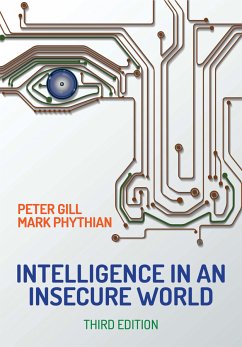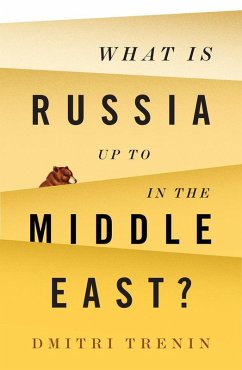
The Future of Intelligence (eBook, ePUB)

PAYBACK Punkte
0 °P sammeln!
Intelligence is, by definition, a shadowy business. Yet many aspects of this secret world are now more openly analyzed and discussed, a trend which has inevitably prompted lively debate about intelligence gathering and analysis: what should be allowed? What boundaries, if any, should be drawn? And what changes and challenges lie ahead for intelligence activities and agencies? In this compelling book, leading intelligence scholar Mark Lowenthal explores the future of intelligence. There are, he argues, three broad areas - information technology and intelligence collection; analysis; and governa...
Intelligence is, by definition, a shadowy business. Yet many aspects of this secret world are now more openly analyzed and discussed, a trend which has inevitably prompted lively debate about intelligence gathering and analysis: what should be allowed? What boundaries, if any, should be drawn? And what changes and challenges lie ahead for intelligence activities and agencies? In this compelling book, leading intelligence scholar Mark Lowenthal explores the future of intelligence. There are, he argues, three broad areas - information technology and intelligence collection; analysis; and governance - that indicate the potential for rather dramatic change in the world of intelligence. But whether these important vectors for change will improve how intelligence works or make it more difficult remains to be seen. The only certainty is that intelligence will remain an essential feature of statecraft in our increasingly dangerous world. Drawing on the author's forty years' experience in U.S. intelligence, The Future of Intelligence offers a broad and authoritative starting point for the ongoing debate about what intelligence could be and how it may function in the years ahead.
Dieser Download kann aus rechtlichen Gründen nur mit Rechnungsadresse in A, B, BG, CY, CZ, D, DK, EW, E, FIN, F, GR, HR, H, IRL, I, LT, L, LR, M, NL, PL, P, R, S, SLO, SK ausgeliefert werden.













